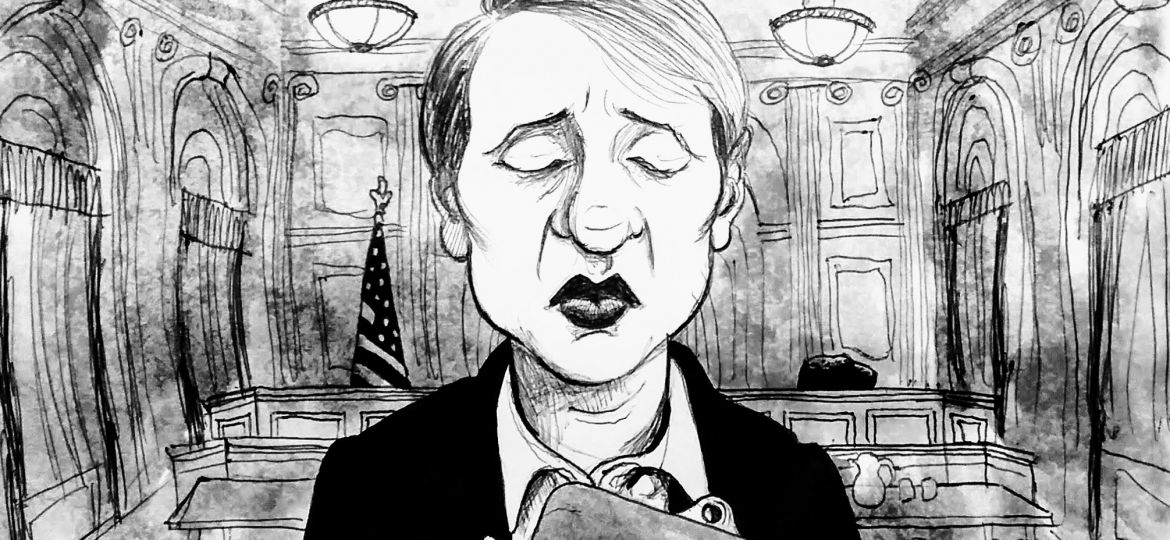
Facts, to most people, are devoid of emotion. They are based on logic and information and cannot be swayed by anything beyond reason. However, in Peter Sagal’s “Denial,” directed by Ch’aska Farber ’21, facts suddenly become very emotional.
The play follows lawyer Abby Gersten, played by Meredith Enersen ’21 as she tackles a difficult case involving freedom of speech. Her client, Bernard Cooper, played by Collin Krieger ’23 is facing legal repercussions after denying the Holocaust and spreading his message to legions of followers from a wide variety of hate groups. Gersten, a Jewish woman, struggles as her client yammers on, bending every fact he hears and denying survivors’ stories to their faces. We hear from survivors, played by Kai Cook ’23 and Ben Jorenby ’20, who give us heart-wrenching testimonials of the darkest times in human history.
The emotions carried the show where the plot and budget failed it. There were points when it was very difficult to forget that the production was put on in a classroom. The overhead lights lit the entire room, including the audience, which was somewhat distracting.
The set was simple, yet effective. There were two large grey walls propped up to break the room and differentiate the stage from the audience; two desks composed the set. There were several props, including some well-drawn graphics and a dartboard, which saw several darts thrown at it throughout the course of the play. For being low-budget, the set and props offered some merits.
However, the plot was muddled. The characters and their emotions drove the story, although it was not always clear who was who and why they were there. It took time to process that the Holocaust survivors were two old men; some make-up or perhaps grey hairspray would have been a helpful clarification. The government’s lawyer, Adam Ryberg, played by Gabriel Maxwell ’22, simply appeared in scenes without much context as to who he really was. It also took quite a while to discover what exactly Cooper has done and why he needed a lawyer. Some background information from the directors at the beginning of the show would have been beneficial, as the reason the entire legal case had come to be was somewhat unclear.
Cooper’s character was simply masterful. He was smart, honest and just downright likeable from the start. However, as the play progressed, the audience became increasingly tempted to leap from their seats to strangle him. Cooper bent the truth, he twisted facts, he turned the language survivors used against them and he contorted emotions. All of the actors did a beautiful job of challenging the audience and of breaking their hearts at times and making them laugh at others.
Surprisingly, “Denial” did produce several comedic moments. The receptionist, Stephanie, played by Janae Lorick ’23 provided some comic relief while helping the lawyer work through her moral turmoils. During some of the most turbulent times of the play, when the tension was at its peak, suddenly there would be cause for the audience to break out laughing. The cast conveyed the widest range of emotions, from fear and anger to pride and humor.
The play ended in a very sudden, emotional way, much like the rest of the show. While the plot was not always clear, the play challenged our morals and our emotions.

